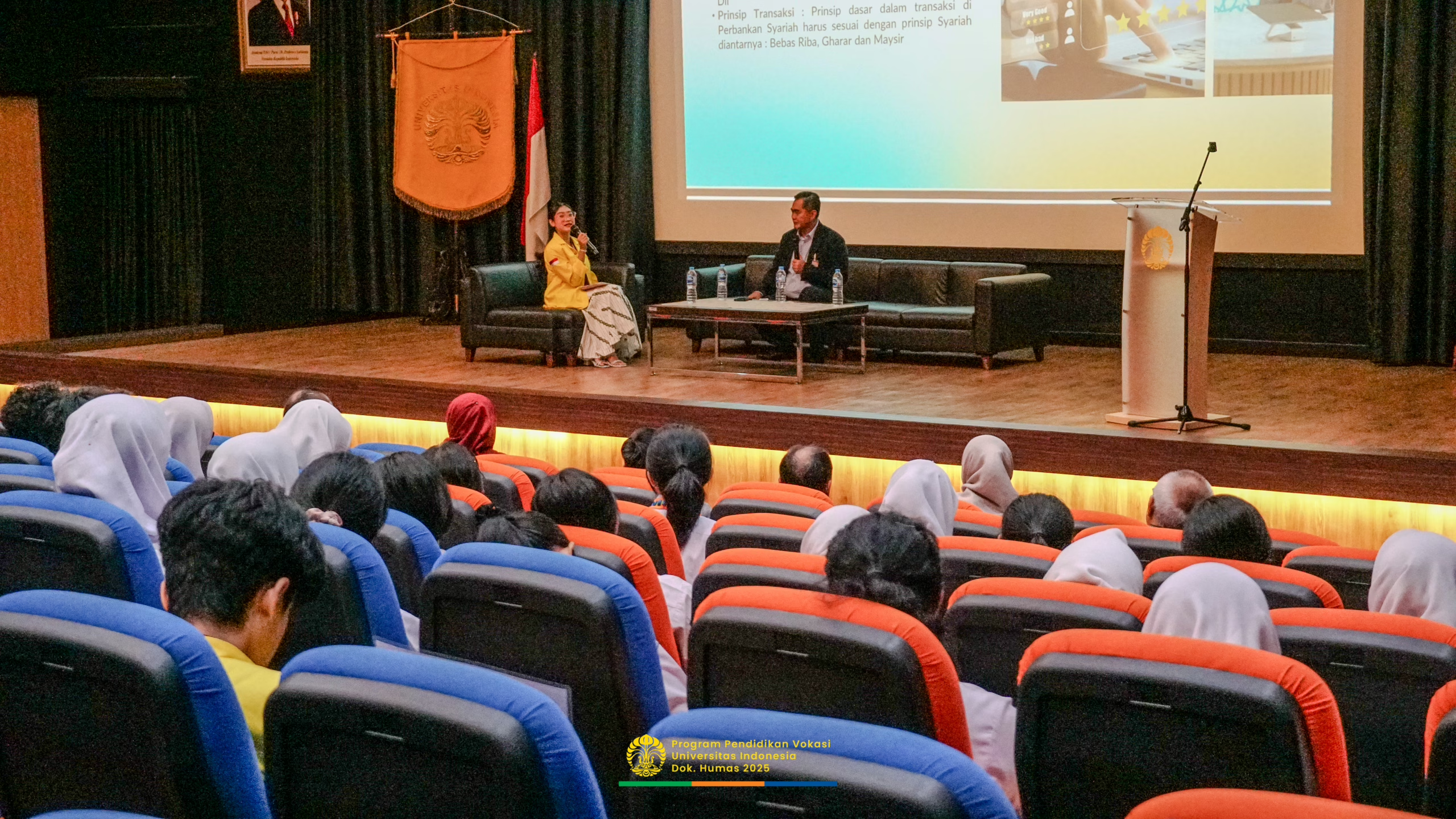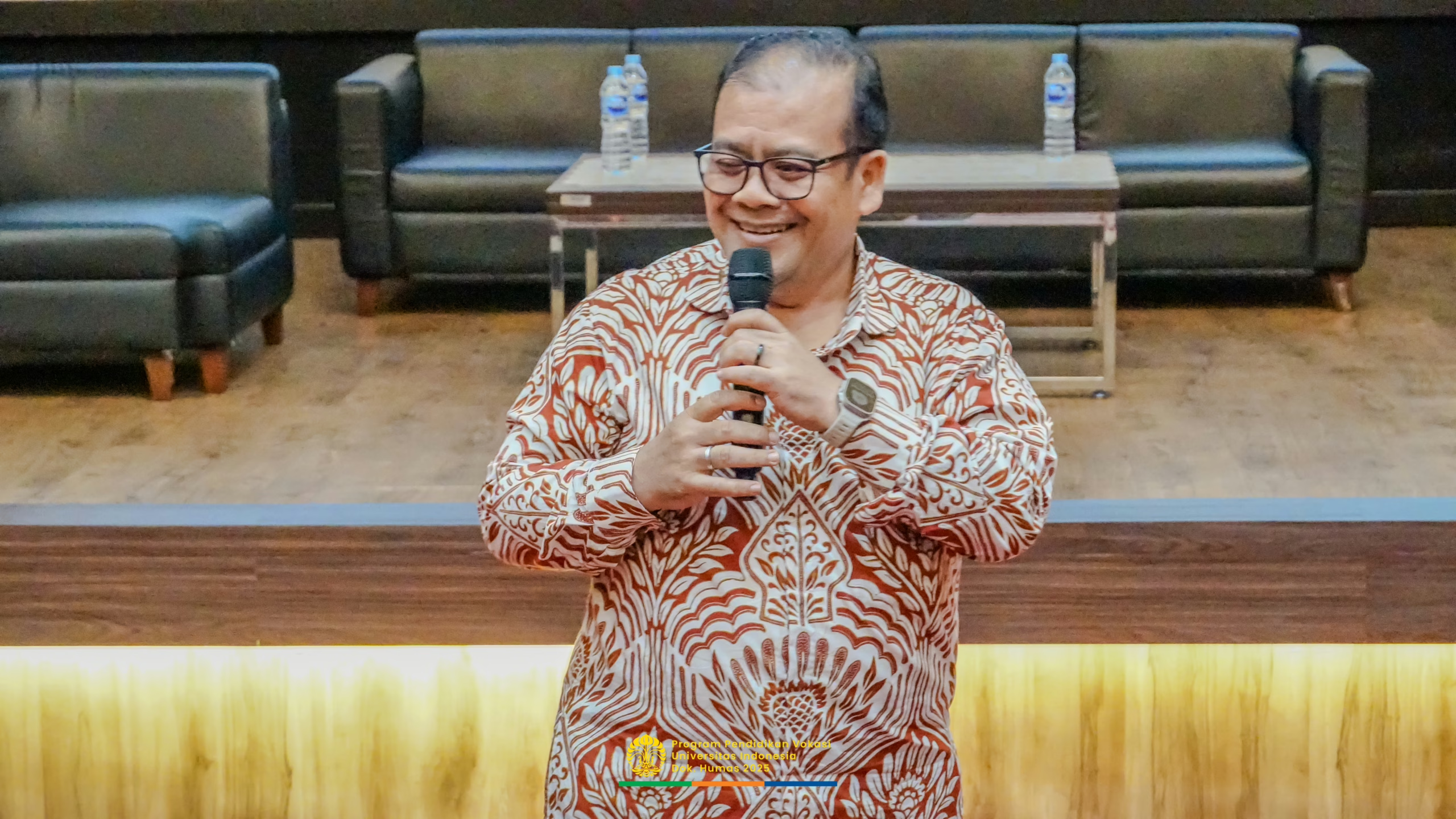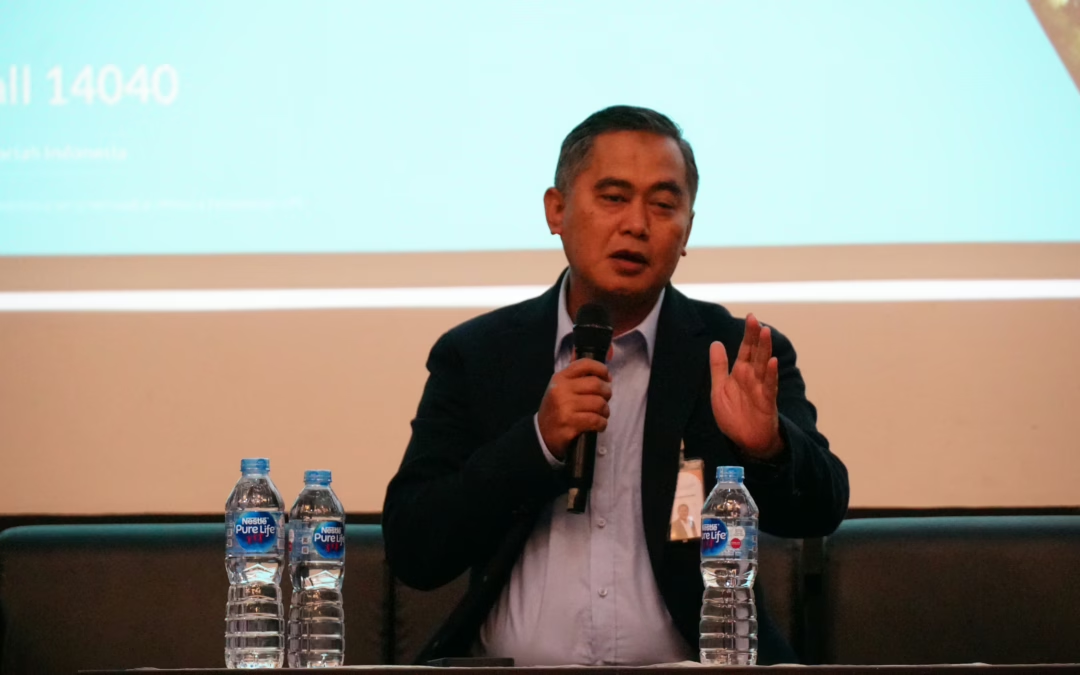Depok-The Financial and Banking Administration study program of the Vocational Education Program, University of Indonesia (UI), held a public lecture titled “Sharia Banking and Its Role in Sharia Economic Development in Indonesia” on August 26, 2025 at the UI Vocational Auditorium. The event featured Deden Durachman, Regional CEO of RO V Jakarta 2 of PT Bank Syariah Indonesia, Tbk (BSI), who explained the strategic role of sharia banking in the growth of the sharia economy in Indonesia.
In his presentation, Deden emphasized that Islamic banks exist to provide financial services in accordance with Islamic principles while simultaneously promoting fair and sustainable economic development. “Islamic banking is not merely a financial intermediary institution, but also a driver of MSME growth, a stabilizer of the national economy, and an instrument of national development,” Deden said.
The history of Islamic banking in Indonesia began with the establishment of Bank Muamalat in 1991. Since then, the industry has progressed through various regulatory phases, finally establishing Bank Syariah Indonesia in 2021, resulting from the merger of three state-owned Islamic banks. BSI is now the largest Islamic bank in Indonesia, with a focus on digital transformation.
Although Indonesia has the largest Muslim population in the world (approximately 87% of the total population), Islamic banking penetration remains relatively low. Data from the Fitch Report and the Islamic Financial Services Board (IFSB) shows that Indonesia only contributes around 13% of total Islamic banking assets in the Asia Pacific region, far below Malaysia’s 62.7%. Furthermore, a positive growth trend has been seen since the BSI merger, with Islamic banking’s market share increasing by around 2% over the past three years.
 (Photo: Discussion session during the public lecture)
(Photo: Discussion session during the public lecture)
Furthermore, Deden highlighted the importance of developing a halal ecosystem involving MSMEs, hospitals, Islamic educational institutions, and the halal food and beverage industry. Deden said, “The potential for sharia financing in the halal sector reaches IDR 158.21 trillion, while the potential for funding is estimated at IDR 212.14 trillion. This presents a significant opportunity for Islamic banking to continue growing.”
However, significant challenges remain, one of which is the low level of Islamic financial literacy. The Financial Services Authority’s National Survey of Financial Literacy and Inclusion (SNLIK) recorded that Islamic financial literacy has only reached 9.14%, far behind the national average of 49.68%. This presents a challenge for the Islamic banking industry, government, academics, and businesses to improve public education.
The Head of the Financial and Banking Administration Study Program, Vindaniar Yuristamanda Putri, S.I.A., M.M., stated that this public lecture for new students will provide them with initial insight into the role of Islamic banking in economic development. Vindaniar said, “Through this collaboration with BSI, we hope the synergy we have built can be strengthened to support sustainable Islamic economic growth. Furthermore, I hope the students can absorb the knowledge Mr. Deden has provided during the public lecture.”
One of the students, Raina Zahwa Hegarmanah, said she gained many new insights from the public lecture. “I understand more clearly that Islamic banking is not just about interest-free transactions, but also plays a vital role in supporting MSMEs, the halal ecosystem, and even national development,” Raina said.
This public lecture is also relevant to UI Vocational commitment to supporting the Sustainable Development Goals (SDGs) agenda, for example, point 10 (Reduced Inequalities), which promotes increased Islamic financial literacy and inclusion and reaches a wider community. Furthermore, point 17 (Partnership for Goals) emphasizes collaboration between government, industry, and academia in developing the Islamic economy.
 (Photo: Vice Director for Education, Research, and Student Affairs, Deni Danial Kesa, M.B.A., Ph.D, giving a speech)
(Photo: Vice Director for Education, Research, and Student Affairs, Deni Danial Kesa, M.B.A., Ph.D, giving a speech)
Vice Director for Education, Research, and Student Affairs, Deni Danial Kesa, M.B.A., Ph.D, emphasized the importance of public lectures as a bridge between academia and industry. Deni said, “Students need to understand the dynamics of the Islamic finance industry directly from practitioners, as this will strengthen their competencies when they enter the workforce. Collaborating with BSI is a strategic step so that UI Vocational not only produces superior graduates but also is able to make a real impact on the development of the national Islamic economy.”
This event is part of a series of New Student Mentoring Periods for the Financial and Banking Administration study program, which emphasize not only academic training but also practical insights from the industry. BSI’s presence as a strategic partner is expected to inspire students to pursue careers in the Islamic finance sector while contributing to national development.


